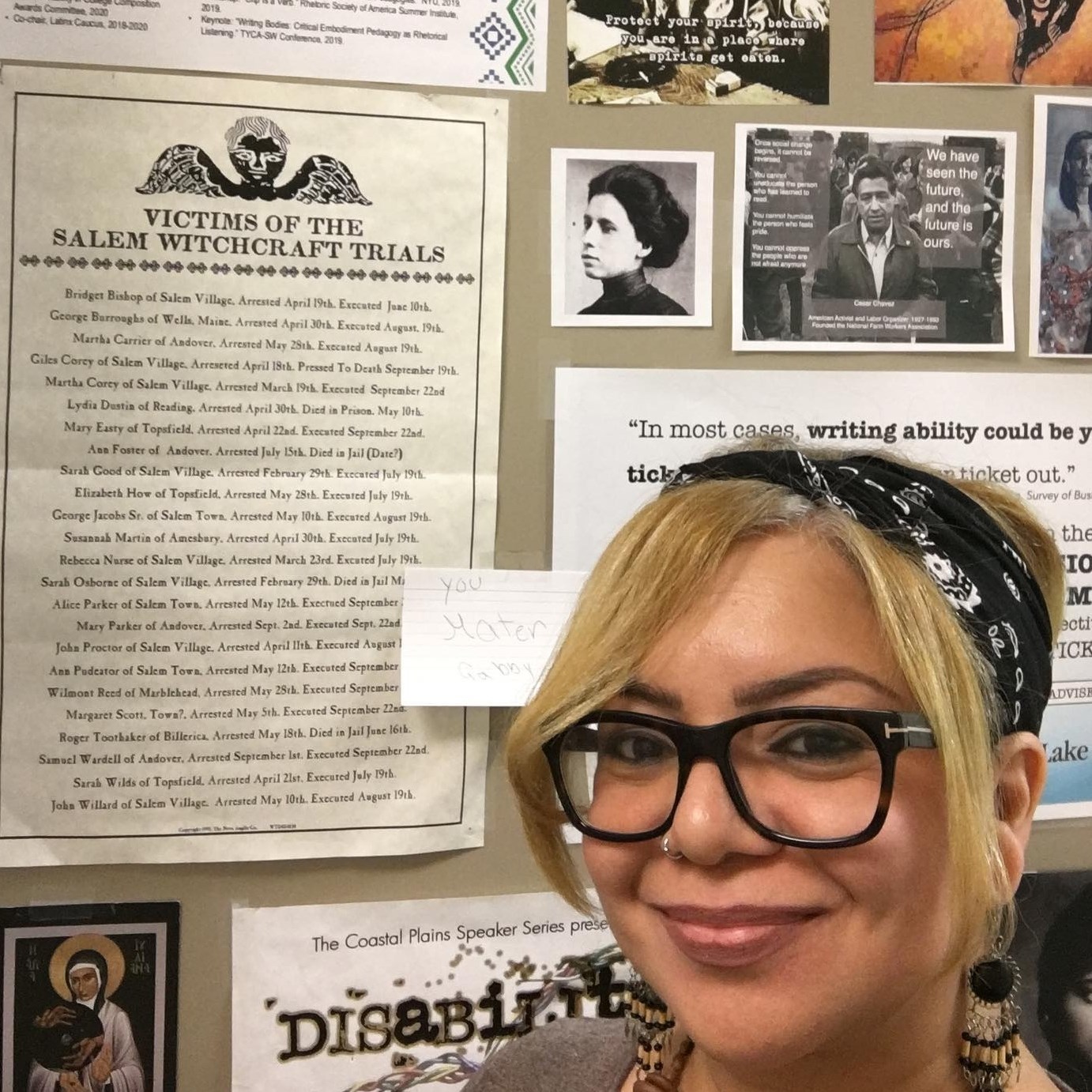
Q&A: Christina Cedillo, assistant professor of writing and rhetoric
Inspired by the popular “Humans of New York” project, The Signal spotlights various members of the UHCL community through profiles and Q&A’s.
Read our latest People of UHCL Q&A with Christina Cedillo, assistant professor of writing and rhetoric, below.
Q: Can you tell us a bit about yourself, on both a personal and professional/educational level?
A: I’m a cultural rhetorician who focuses on race, gender and disability from a decolonial perspective. My Ph.D. is in English from Texas A&M University, with a specialization in Rhetoric and Composition. I studied under a professor who was a renowned feminist rhetorician all too familiar with sexism’s impact on women scholars. Now my elders are Indigenous scholars whose research, arts and activism go hand in hand. My personal and professional lives are basically intertwined because through my studies, I came to realize how rhetoric makes the world. In other words, how we communicate in words, actions and communally determines who we are at the most fundamental levels of being. So you’ll rarely find me talking about other things, even at parties!

Q: What made you decide to be a part of the Latina/o and Latin American Studies (LLAS) program?
A: I became part of LLAS because more than one history needs to be told. Personally, I have a very ambivalent relationship with the word “Latinx,” and many others do too, but programs like LLAS are so vital in helping us contend with such tensions and come to our own conclusions. As a person of Indigenous Mexican descent, I wrestle with “Latinx” because it’s a Eurocentric word, but we also need ways to express solidarity among communities affected by similar forces. Because of my own familial history, I’m familiar with the ways that words can obscure certain histories. Terms like “Hispanic” and “Latinx” center colonial perspectives that have affected the original peoples of the Americas for 500 years, but the way that terms change over time speaks to history’s basis in the stories we tell and our willingness to interrogate the narratives we have inherited. LLAS gives students the tools for doing so.
Q: What is the best piece of advice you have ever been given?
A: I recently just tweeted about this a part of a disciplinary conversation! I’ve written about the problems I dealt with in graduate school, stemming from white stream education’s dismissal of marginalized perspectives. As a disabled woman of color, I dealt with impostor syndrome, which is common for a lot of grad students. My chair and mentor said that academia was set up that way deliberately, to weed people out, especially women and people of color. She said to remember two things: that good ideas should be expressed in terms that our own communities can understand; and that anytime someone tried to make you feel bad about yourself, just to remember that in the end, the work would speak for itself.
Q: What are some activities you enjoy doing outside of work/school?
A: I like to paint, play video games, and travel. I also like napping with my dog Cilantro and my cat Ozymandias. Academic work hours make it so you nap a lot!
Q: What are three things you can’t live without?
A: Copal, the internet, and gluten-free donuts.
Q: Is there anything you would like our readers to know?
A: Maybe more like advice? Never underestimate the importance of community in making your way through school and the world. Community is about making space for one another when and as needed, recognizing the “rugged individualism” that we’re taught to celebrate can be really toxic. We need each other. Community, not just the people in your neighborhood. It is your extended family, the people who claim you, and it literally keeps you sane when the pressures get too much. Personally, I’m grateful for my Myaamia, Lakota, Anishinaabeg, and Chicanx relatives for their patience and love. Find the people who will love you and have your back!
